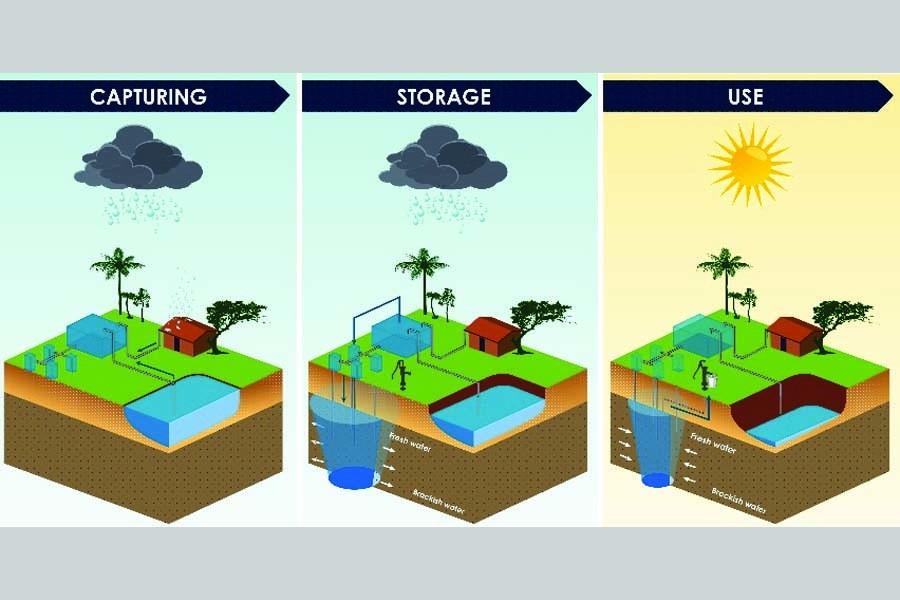Who does not recognise the necessity for safe drinking water? Safe water saves life, but it is terribly under threat. The WHO (World Health Organisation) estimates that around half of the population of Bangladesh are drinking unsafe water and the nation is in danger. People living in the South-western part of the country suffer also from saline groundwater and high arsenic concentration at shallow depth.
With ample rainfall during the monsoon the Managed Aquifer Recharge (MAR) has been introduced in South-western Khulna, Satkhira and Bagerhat to ensure fresh and safe drinking water.
MAR is a climate-resilient and cost-effective freshwater management solution. In MAR, surplus water is injected in shallow aquifer for storage and withdrawal in period of deficit through a well during times when water is available and the recovery of water from the same well during times when it is needed.
In MAR system of Bangladesh, surface water (pond and rainwater) is collected and stored in the underlying shallow aquifer that is confined by clay at top during monsoon and other time of year depending on availability of source water. Fresh surface water is injected into shallow saline aquifers using 4-6 large diameter infiltration wells and later, stored water is abstracted from a centre observation well using hand pump.
A consortium of UNICEF, Department of Public Health Engineering (DPHE), Dhaka University and Dutch consultant Acacia Water with the help of local non-governmental organisations (NGOs) installed 20 MAR sites at different stages (from 2009-2012) in these areas with the goal of mitigating social problems and providing fresh drinking water option. After monitoring at pilot stages (2012-2014), the consortium planned for upscaling 80 more MAR sites which were completed within the timeline 2014-2018.
While regular monitoring those sites, it has been observed that MAR performance varies with salinity reduction, elevated arsenic concentration, maintenance and governance. Knowledge and guidelines are needed for optimal MAR performance with reference to water quantity, quality and governance.
This is a prerequisite for upscaling MAR in Bangladesh and others parts of the world. UNICEF MAR sites have recently made progress in physical aspects but understanding of water quality aspects is limited. Therefore, it is necessary to assess which processes control water quality changes in MAR system and what are effects of introducing oxygen and organic carbon into reducing aquifers.
To achieve those, a research has been started since January 2016 under Delta-MAR project to assess water quality improvements and deteriorations that could occur when surface water is stored in these aquifers. A focus issue is the potential mobilisation of arsenic, which has been observed at some sites. This project aims to set the scientific framework and provide (practical) knowledge to build many more of these MAR systems in coastal Bangladesh and comparable areas ensuring water quality.
Muhammad Risalat Rafiq, Lecturer, Department of Geology and Mining, University of Barishal, is a PhD Candidate at TU Delft Sanitary Engineering, Netherlands


